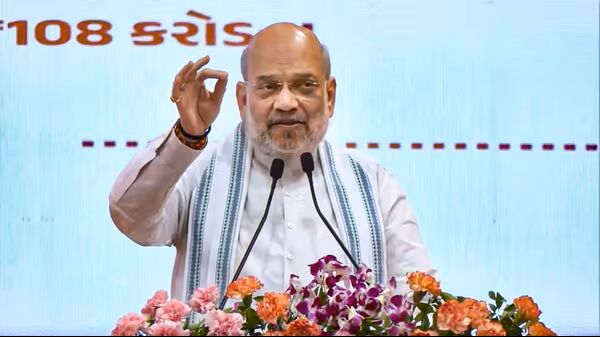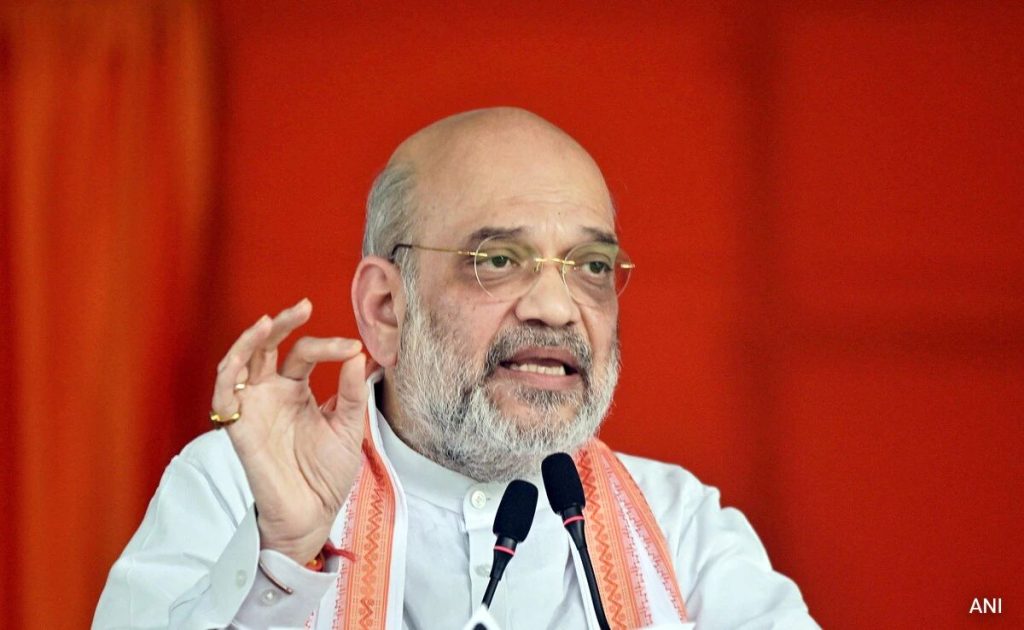
Union Home Minister Amit Shah has made a startling revelation—active terror camps operate within just 100 km of India’s borders, posing a continuous threat to national security. In a high-level security meeting, Shah emphasized the government’s zero-tolerance policy towards terrorism and outlined a multi-pronged strategy to dismantle these terror hubs. This disclosure comes amid rising concerns over cross-border terrorism and its impact on regional stability.
Amit Shah’s Security Briefing: Key Takeaways
During a recent review of India’s internal security, Amit Shah highlighted critical intelligence findings:
- At least 12 terror launch pads are active near the Line of Control (LoC) and International Border (IB).
- Increased drone activity from across the border, used for smuggling arms and drugs.
- New terror recruitment trends in Jammu & Kashmir, with radicalization spreading through social media.
Shah assured that security forces have been given a free hand to neutralize threats, stating, “We will not allow terrorism to disrupt peace in India.”
Read Also: BSF Soldier, Detained By Pakistan Rangers On April 23
How India is Countering Terrorism Near the Border
The government has adopted a three-fold strategy to combat terror camps within the 100 km radius:
Enhanced Surveillance
- Deployment of advanced drones and satellite imaging to monitor suspicious movements.
- AI-powered surveillance systems at border outposts for real-time alerts.
Stronger Border Infrastructure
- Fencing and smart sensors along vulnerable stretches.
- Fast-track construction of bunkers for security personnel.
Surgical Strikes and Intelligence-Based Ops
- Precision strikes on terror hideouts (similar to Balakot and Uri operations).
- Increased coordination between Army, BSF, and intelligence agencies.
Source: Times Now
Historical Background: The Legacy of Terror Camps
The presence of terror camps near the Indian border is not new. Since the 1990s, Pakistan-based terror outfits like Lashkar-e-Taiba, Jaish-e-Mohammed, and Hizbul Mujahideen have used these camps to train operatives for attacks in Kashmir and other parts of India.
Civilian Response and Preparedness in Border Areas
Residents in border towns such as Jammu, Poonch, Rajouri, and Baramulla have expressed concerns regarding their safety and livelihood. Several have reported increased movement of security forces and roadblocks. Educational institutions are on high alert, and emergency drills have been conducted.

Actions Taken for Civilian Safety:
- Emergency helplines activated
- Medical aid and trauma centers stocked
- Civil defense volunteer units mobilized
- Border village evacuation plans rechecked
Though no immediate threat has been confirmed, civilian anxiety is high, especially in regions frequently targeted by shelling and infiltration attempts.
Terror Camps in Pakistan: India’s Diplomatic Offensive
India has long accused Pakistan-based terror groups like Lashkar-e-Taiba (LeT) and Jaish-e-Mohammed (JeM) of running training camps near the border. Despite global pressure, Islamabad has failed to take concrete action.
India’s Global Push Against Terrorism
- Sharing evidence with FATF to blacklist Pakistan.
- Lobbying at the UN for stricter counter-terrorism measures.
- Bilateral talks with US, UK, and EU to curb terror financing.
Amit Shah warned, “Countries supporting terrorism will face isolation.”

Impact on Jammu & Kashmir: Security Measures Intensified
Since the abrogation of Article 370, security forces have cracked down on terror networks in J&K. Recent successes include:
- Elimination of 150+ terrorists in 2024.
- Decline in stone-pelting incidents by 70%.
- Surge in youth surrendering after anti-radicalization campaigns.
FAQs: Understanding the Threat from Nearby Terror Camps
Q: How many terror camps are currently active near India’s borders?
A: Intelligence reports suggest 12-15 active launch pads within 100 km.
Q: What is India doing to stop cross-border drone threats?
B: Anti-drone systems and laser-based countermeasures are being deployed.
Q: Has Pakistan taken action against these terror camps?
C: No. Despite international pressure, Pakistan continues to deny their existence.
Future Steps: Amit Shah’s Counter-Terror Roadmap
The Home Ministry has outlined a five-year plan to eliminate terrorism:
- Strengthening cyber warfare units to track online radicalization.
- Modernizing state police forces with counter-terror training.
- Expanding the National Intelligence Grid (NATGRID) for better data sharing.
Shah affirmed, “By 2030, India will be terror-free.”
Read Also: India and Pakistan Agree to Ceasefire?
Conclusion: A United Fight Against Terrorism
The revelation of terror camps within 100 km of India’s borders underscores the persistent threat from cross-border terrorism. However, with Amit Shah’s decisive leadership and a strong security framework, India is better equipped than ever to neutralize these dangers. The government’s zero-tolerance policy, combined with international cooperation, sends a clear message: India will not back down in its fight against terror.





